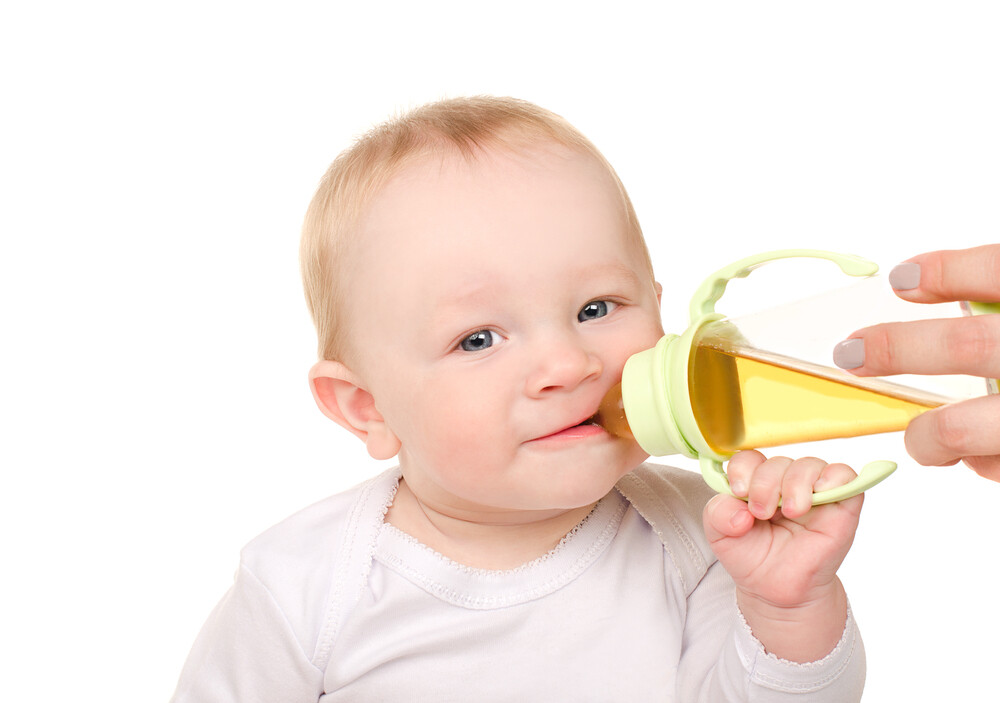Tea can be a real blessing and relieve many ailments. But is it already suitable for babies? Here you can find out if babies can have tea.
When will babies be allowed to drink tea?
- As long as babies are fully breastfed, they do not need any additional fluids, as breast milk contains all the necessary nutrients and can completely quench their thirst.
- Additional fluids must only be given as soon as the third porridge meal is introduced with the complementary food (approximately from the 7th month of life). In this case, however, pure water is recommended as a thirst quencher. Only if your baby has complaints or needs a change now and then, tea is a suitable remedy.
- However, if your baby is ill (fever or gastrointestinal infection), it is advisable to drink tea before the introduction of the complementary food to provide additional fluids. Ask your paediatrician or midwife for advice on this!
Which tea is suitable for babies?
- Fennel tea: Fennel tea has a slightly sweet taste, which your baby will enjoy. The fennel seeds contain essential oils. By pressing the seeds lightly before pouring the tea, the soothing effect of the essential oils unfolds. Fennel tea can therefore provide relief, especially for stomach aches and flatulence.
- Anise tea: Anise tea can also help with stomach aches, cramps and flatulence. It also dissolves cough mucus.
- Camomile tea: The anti-inflammatory and calming effect of this tea can be used for problems in the gastrointestinal tract.
- Roiboos tea: With its sweetish taste, its antispasmodic effect and its minerals, this tea is recommended for babies.
Babies should not drink these teas
- Black tea and green tea: The tanning agents contained are not suitable for babies.
- Peppermint tea: Contains essential oil, which should not be consumed by babies or infants. The tea is even dangerous as there is a risk of respiratory arrest.
- Tea with aromatic substances
- Tea with sugar
Here’s what you need to consider when buying baby tea
- Avoid the common teas from the supermarket if possible. They are usually made from the entire plant, which is why their effect is reduced. Loose teas from the health food store or pharmacy, on the other hand, are purer and of higher quality.
- Pay attention to organic quality, so that no pesticides are contained!
- Appropriately labelled baby teas should also be examined carefully. They may contain sugar-like substances, such as lactose or malt sugar and glucose. In this case, such teas are not recommended for babies, as the sugar attacks the teeth. Protein extracts should also not be contained.
This is how you prepare the baby tea
- Boil water to kill all germs.
- Pour the tea with sparkling water and leave it covered for ten minutes before straining it.
- Once the tea has cooled to body temperature, your baby can drink it. To cool the tea down more quickly, you can also dilute it 1:1 with boiled and already cold water. Babies have a sensitive taste, so it is also advisable to dilute the tea with water! The tea must not be sweetened!

